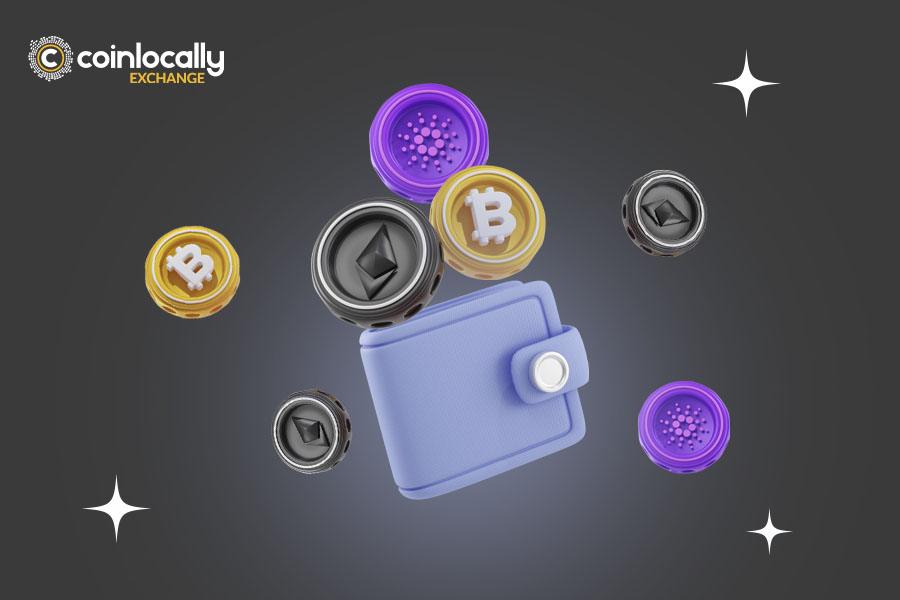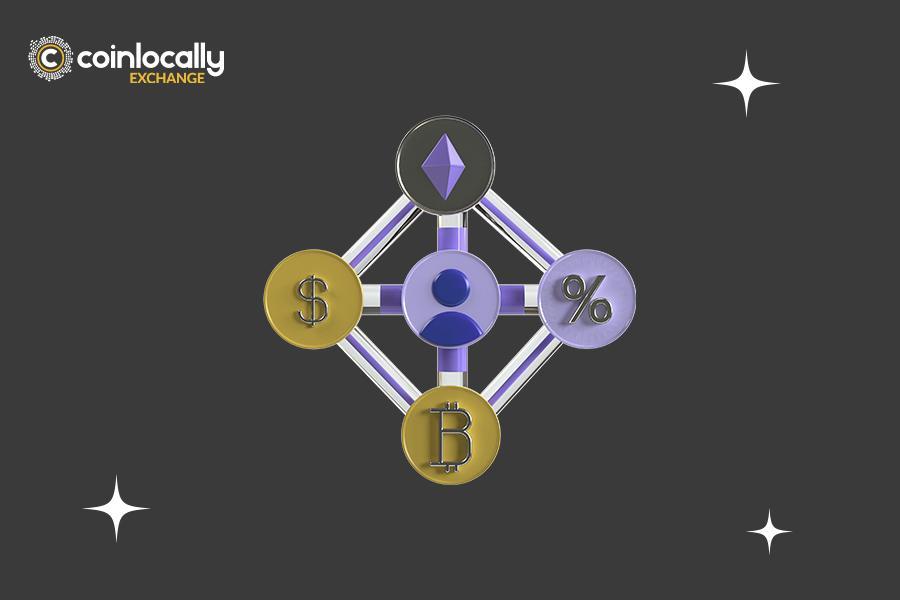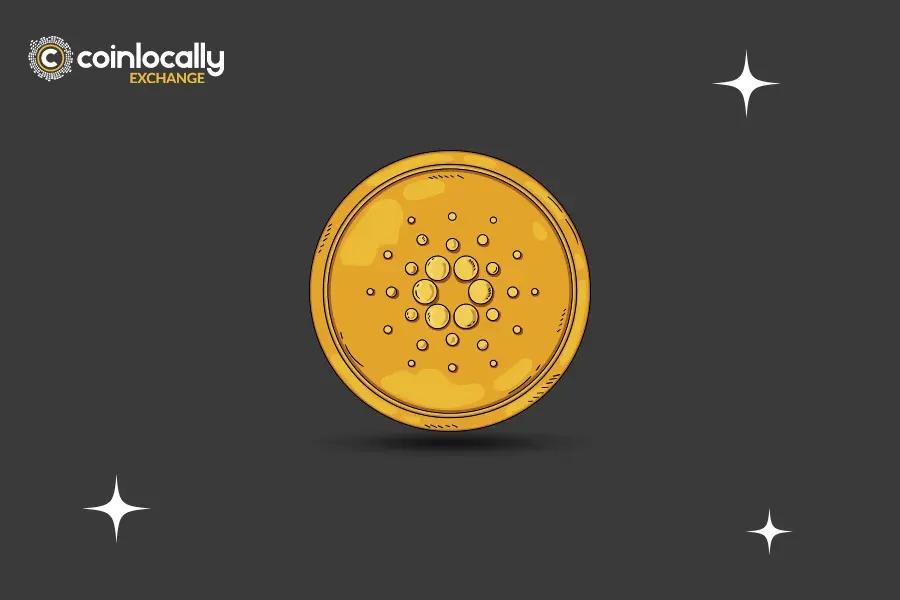Cryptocurrencies are becoming increasingly popular. This blog post will be handy if you want the best crypto wallet for your children under 18. In what follows, we will break down the different types of wallets, explore their pros and cons, and help you find a secure and user-friendly solution for your child.
Table of Contents
Types Of Crypto Wallets
Focusing on control and access, we can divide crypto wallets into two general types: Centralized and Decentralized, which we’ll elaborate on here.
Centralized Crypto Wallets
- Centralized or custodial wallets are controlled by a third party, so users don’t have complete access to them.
- Also, users under 18 are not allowed to register on centralized wallet websites. Upon opening an account, users must fill out a KYC form and provide identification, which excludes those under 18.
- Kraken, Coinbase.com, and Binance are examples of centralized wallet platforms.
Decentralized Crypto Wallets
- Decentralized or non-custodial wallets give the users complete control, as no third party is involved.
- To use decentralized wallets, users download the wallet app and create an account, even if they are under 18. So, no identification or KYC is needed.
Decentralized crypto wallets are divided into two types, Hot and Cold, according to how they store public and private keys. Hot and Cold wallets include some subcategories.
- Hot Wallets: Software Wallet, Desktop Wallet, Mobile Wallet, Online Wallet
- Cold Wallets: Hardware Wallet, Paper Wallet, Offline Wallet
Let’s learn all about the Hot and Cold crypto wallets.
Hot Wallets
Hot wallets are called hot because they are connected to the Internet, meaning you can access them around the clock. However, being online means they are open to scams and hacks, which makes them riskier to use.
Hot wallets are online and based on software, so they can be used on PCs, cell phones, web versions, and extensions.
Providing online access from any device anywhere in the world, top Hot crypto wallets are preferred by traders and those who want to monitor their investments constantly.
As mentioned above, Hot wallets include Software, Desktop, Mobile, and Online (Web) wallets. Let’s check some examples of each.
- Software Wallet: Breadwallet is a Software wallet that can be accessed on a desktop or the web.
- Desktop Wallet: Exodus is a Desktop wallet that can be installed on a computer.
- Mobile Wallet: Trust Wallet is a mobile wallet that is easily accessed on a tablet or smartphone.
- Online (Web) Wallet: Coinbase wallet is an Online or Web wallet that you can access on a web browser.
Maintaining security is one of the most significant measures you need to take before choosing a Hot wallet, so choose the platforms that guarantee high security.
CAUTION:
- Use two-factor authentication for your Hot wallets.
- Don’t store large numbers of cryptocurrencies in Hot wallets.
So, after learning the main features of Hot wallets, let’s move on and see what Cold wallets are.
Cold Wallets
Unlike Hot wallets, Cold wallets are not connected to the Internet and store crypto assets offline; that’s why they are called cold.
Cold wallets work offline to increase security and avoid the scams and hacks that happen to Hot wallets.
Cold wallets come in three general forms: Hardware, Paper, and Offline wallets.
- Hardware Wallets are physical devices like USBs that work so simply that no electronic device (hackers) can access them. Ledger is an example of a Cold wallet.
- Paper Wallets are printed paper containing your private keys and QR Codes to make transactions.
- Offline Wallets are software wallets installed on computers that are not connected to the Internet.
While top Cold wallets are almost immune to online hacks, they may get stolen, lost, or damaged. So, it’s essential to keep them in a safe place—actually, in a safe! Safekeeping measures aside, Cold wallets are great for storing large numbers of cryptocurrencies.
So, now you know the main types of crypto wallets under 18, their pros and cons, and how each can be used. Let’s speak more precisely, focus on children, and see which type of crypto wallet is best for your child.
Which Type Of Crypto Wallet Is Best For Your Child?
The essential factor to consider when choosing the best wallet for those under 18 is security, as children may not know enough about cryptocurrencies and wallets, which increases the risks.
Three of the most common wallets are Hot Mobile Wallets, Hot Desktop Wallets, and Cold Hardware Wallets. The following table summarises their pros and cons to help you decide more easily.
As the above table indicates, Cold wallets, especially Hardware wallets, are safer for all users, especially those under 18. Also, younger children may not completely comprehend the importance of safekeeping private keys. So, your direct supervision as a parent or guardian is necessary.
If you lose your private keys or seed phrases, you can never reaccess your wallet, as they are not recoverable.
Although Cold wallets are safer, Hot wallets are easier to access, and many users prefer them. No matter which of these two groups you belong to, we will list the top Hot and Cold wallets for those under 18.
Top Hot Crypto Wallet Under 18
This section will explain the 5 best hot wallets for those under 18.
MetaMask
MetaMask is a popular digital wallet for Ethereum and Ethereum-based cryptocurrencies. Millions of people use MetaMask monthly to store and send their cryptocurrencies and access decentralized applications.
Its user-friendly interface makes it suitable for both new and experienced users. MetaMask also has the advantage of using it on your smartphone or computer by downloading the mobile app or browser extension.
| PROS | CONS |
| Works with popular NFT platforms, games, and dApps | Transaction fees can be significant, especially on specific networks |
| Multi-platform support (mobile systems, browsers) | Cannot store bitcoins |
| Easy to learn and use |
Crypto Wallet Under 18: Exodus
Exodus is an excellent choice for storing cryptocurrencies safely because it gives you complete control over your funds. When you create an Exodus wallet, you will get a secret phrase (12, 18, or 24 words) that protects your wallet.
Exodus doesn’t have access to your wallet information, so your cryptocurrencies are always secure. Moreover, you can use Exodus on your phone (iOS or Android), computer (Windows, Mac, or Linux), and in your web browser.
| PROS | CONS |
| Supports various blockchains | High fees for credit and debit card transactions |
| No fees for incoming transfers | Quite challenging for beginners |
| Accessible on mobile devices | Lacking comprehensive security features |
Crypto Wallet Under 18: Trust Wallet
Trust Wallet is a secure, free, and versatile non-custodial wallet that supports many cryptocurrencies and blockchains.
Trust Wallet has strong security features, including a secret phrase of 10 words that makes it hard for hackers to access your account. It also supports stablecoins, cryptocurrencies that try to stay at a stable price.
| PROS | CONS |
| Easily connects to Binance | Limited trading tools and educational resources |
| Free to use | No two-factor authentication |
| Supports a wide range of cryptocurrencies and NFTs | May not be reliable for all crypto assets |
| User-friendly for beginners | |
| Offers in-wallet features like swapping, staking, and buying |
Coinomi
Coinomi is a versatile cryptocurrency wallet that supports many coins and tokens. It is one of the oldest cryptocurrency wallets that has been around since 2014. Coinomi was initially available only for Android, but later expanded to iOS and desktop devices.
Coinomi supports over 125 blockchain assets and 382 tokens, including the popular ERC20 standard. This allows you to add custom tokens to your wallet.
One of Coinomi’s best features is its SegWit compatibility, which means you can send faster and cheaper transactions. You can also choose your own transaction fees to suit your needs.
| PROS | CONS |
| Supports many cryptocurrencies | Doesn’t work with hardware wallets |
| Offers various features for users | Not open-source software |
| No transaction fees | Doesn’t have two-factor authentication |
| Available in over 20 languages | |
| Has pretty good security measures |
Atomic Wallet
Atomic Wallet is a convenient wallet that lets you store and manage various cryptocurrencies. Unlike needing separate wallets for different coins, Atomic Wallet supports over 300 cryptocurrencies.
Atomic Wallet does more than just store your crypto. It also allows you to exchange cryptocurrencies directly within the wallet using atomic swaps.
If a cryptocurrency doesn’t support atomic swaps, Atomic Wallet integrates with Shapeshift and Changelly for exchanges. What’s more, you can buy Bitcoin, Litecoin, Ethereum, and Ripple using a bank card right from the wallet.
| PROS | CONS |
| You have complete control over your private keys | Limited security features |
| Works on various devices | 2% fee for buying crypto with cards |
| No storage fees | No browser extension |
Top Cold Crypto Wallet Under 18
After discussing hot wallets, it is time to explore the best cold wallet options for people under 18.
Trezor
Trezor offers one of the highest-quality hardware wallets for storing cryptocurrencies. The basic model costs around $60, while a more advanced model with a touchscreen costs $180.
Trezor works with other crypto companies like Exodus and offers features like staking and buying crypto through its software. One more positive aspect of Trezor is that you can use it on your computer or phone using the Trezor Suite Lite app.
| PROS | CONS |
| Works on various devices and platforms | Doesn’t have built-in staking or NFT features |
| Supports over 1800 cryptocurrencies | Feel somewhat outdated due to limited features and updates |
| Easy to use | More expensive than other options |
| Provides recovery assistance for lost wallets | |
| Strong security |
Ledger Nano X
The Ledger Nano X is a top-quality hardware wallet known for its many features and strong security. It’s one of the most popular hardware wallets, along with other Ledger products like the Ledger Nano S. The popularity of the Ledger Nano X lies in its security and ability to handle over 1300 different cryptocurrencies and tokens.
| PROS | CONS |
| Connects via Bluetooth to your phone | Relatively expensive |
| Works on various devices | Limited to 100 applications |
| Securely stores private keys on the device | Cannot buy assets or tokens directly |
| Supports many popular cryptocurrencies |
KeepKey
Made by ShapeShift, KeepKey is another physical wallet that stores cryptocurrencies. As a cold wallet, KeepKey stores your crypto offline. To access it, you need to connect KeepKey to your computer and use the secret code it generates for you.
Perhaps KeepKey’s biggest selling point is that it is one of the most affordable physical wallets, costing only $49. This makes it a good choice for both new and experienced crypto users.
| PROS | CONS |
| Strong security for cryptocurrencies | Supports fewer coins than some competitors |
| User-friendly | Losing the password and recovery phrase means losing access |
| Supports many crypto assets | Doesn’t show estimated transaction costs |
| Affordable price |
ColdCard Wallet
ColdCard wallet is a specialized hardware wallet that is designed specifically for Bitcoin. It is easy to use, highly secure, and allows you to store your secret seed words on a special chip.
The most interesting aspect of ColdCard is its true air-gap functionality, i.e., it doesn’t have to be connected to a computer to do anything, including generating seed words or signing transactions.
| PROS | CONS |
| User-friendly for Bitcoin users | Only supports Bitcoin |
| Very secure | Difficult to set up |
| Open-source software | No mobile app |
| Simple design | |
| Uses PIN and passphrase for added security |
Crypto Wallet Under 18: Safepal S1
SafePal S1 is a cost-effective hardware wallet that supports various cryptocurrencies and NFTs from different blockchains. Founded in 2018, SafePal offers a full range of secure crypto tools for beginners and experienced users.
It is worth noting that SafePal is backed by Binance Labs, Binance’s investment arm. SafePal now has over seven million users worldwide and provides hardware wallets, software wallets, and browser extensions.
| PROS | CONS |
| Supports many blockchains (54) and cryptocurrencies (30,000) | Average user experience and design |
| Stores non-fungible tokens | Potential security concerns with the hardware |
| Has its own utility token, which is called SafePal Token | |
| Includes a self-destruction feature |
How To Set Up a Crypto Wallet Under 18?
One of the essential questions yet to be answered about crypto wallet under 18 is how to set one up. Let’s learn how in the following section. Setting up a crypto wallet is not a demanding task, and you or your children under 18 can take the steps to set it up. Here are the steps to set up crypto wallets for a child.
- Choose a wallet: According to what we’ve learned in this article, Cold wallets are safer, but Hot wallets are easier to use, so choose the one that best suits your child’s needs.
- Create a new wallet: The next step is creating a new one and setting a strong password. YOU MUST write down the seed or recovery phrase and keep it safe. If anybody else accesses it, they access your cryptocurrencies. If you forget the seed phrase, you will never access your cryptocurrencies. Also, ensure your child is on the same page about security, and do not disclose the seed phrases to anybody.
- Secure the wallet: Use all available safety measures, like two-factor authentication, to secure your crypto assets.
- Add cryptocurrencies: When you finish the previous steps, you can transfer your crypto assets to and from your wallet. Some believe that only sending coins to the wallet and not accessing it online is a good safety measure for Cold wallets, as the keys are not exposed to the Internet.
All in all, time to teach your under-18 children the basics of crypto, as it is the new banking and even an investment that can save their future.




